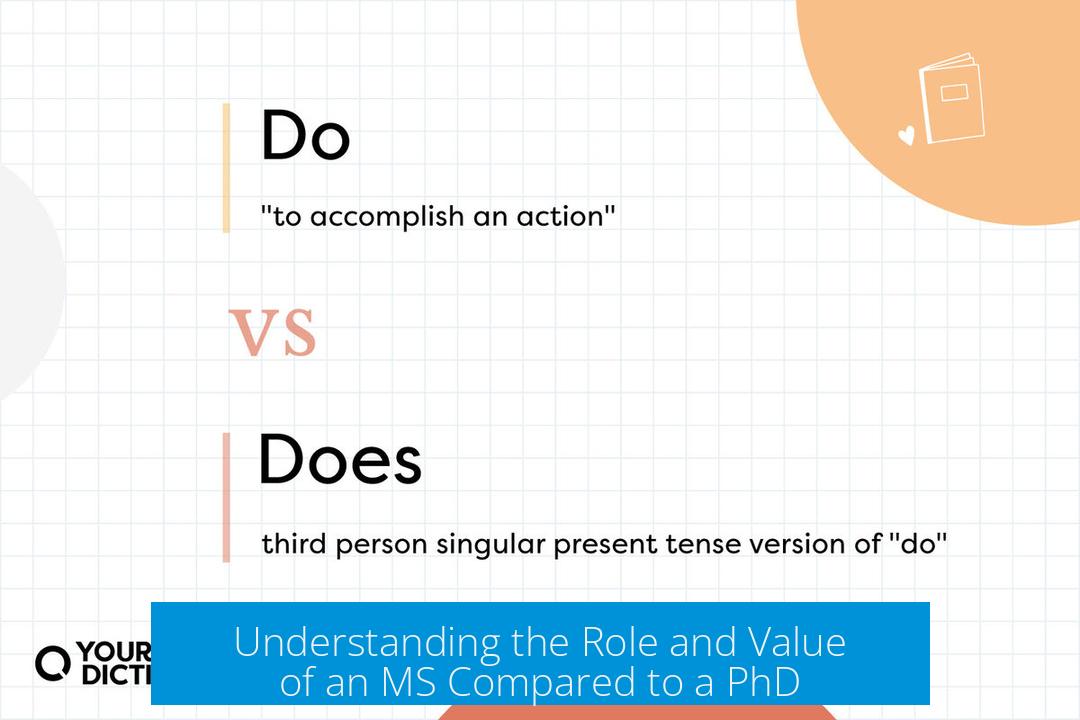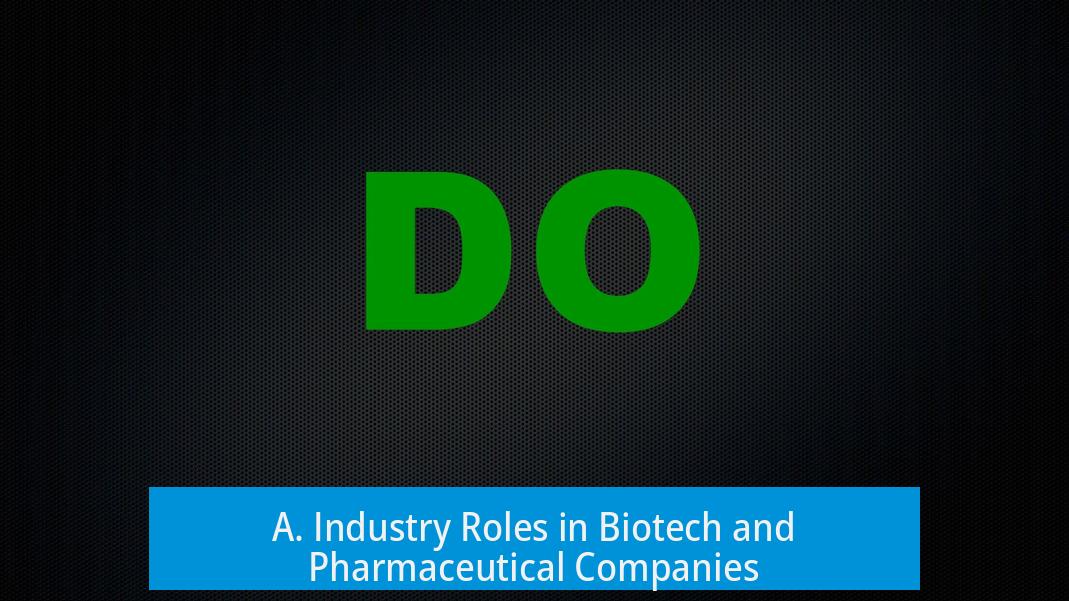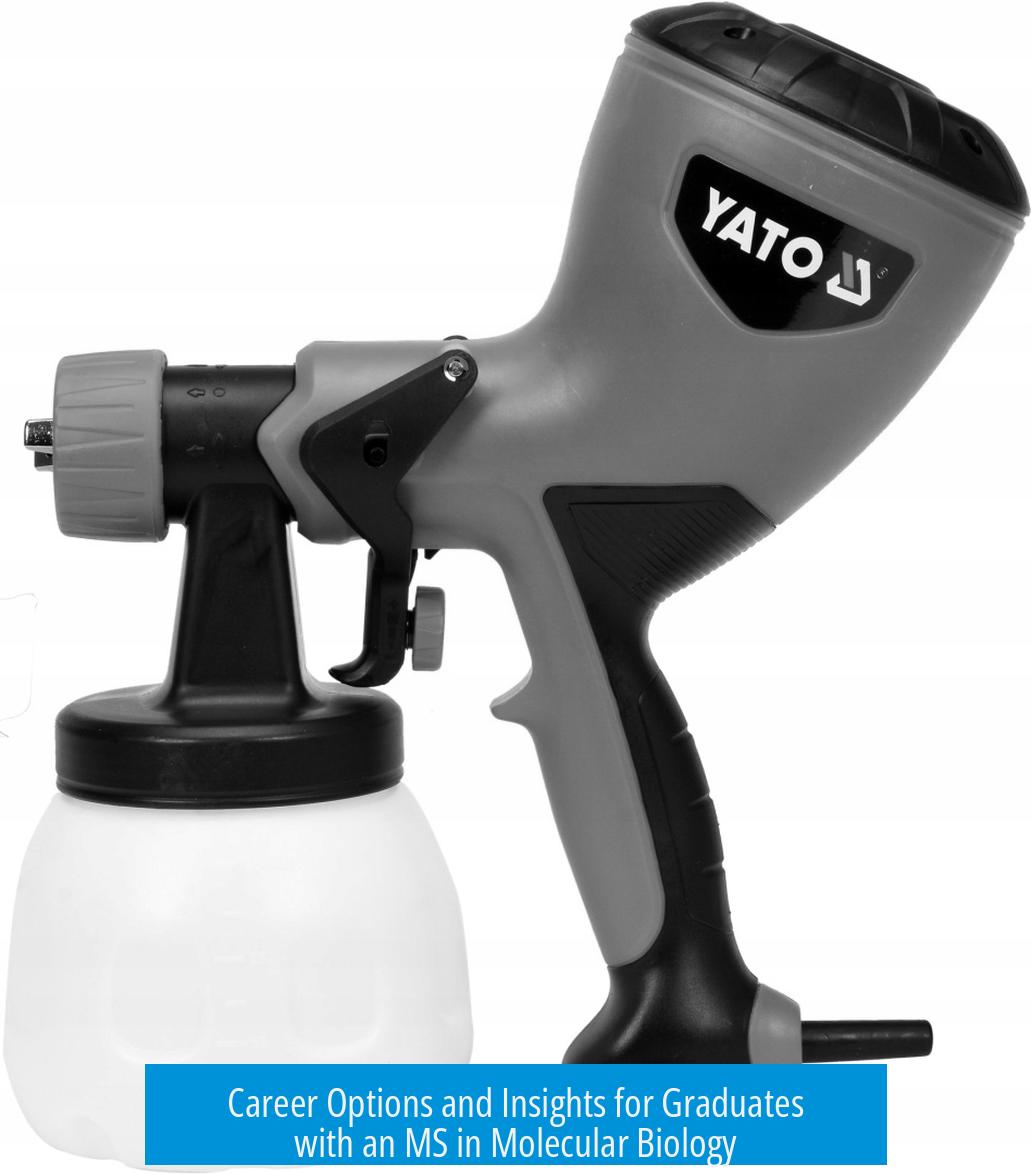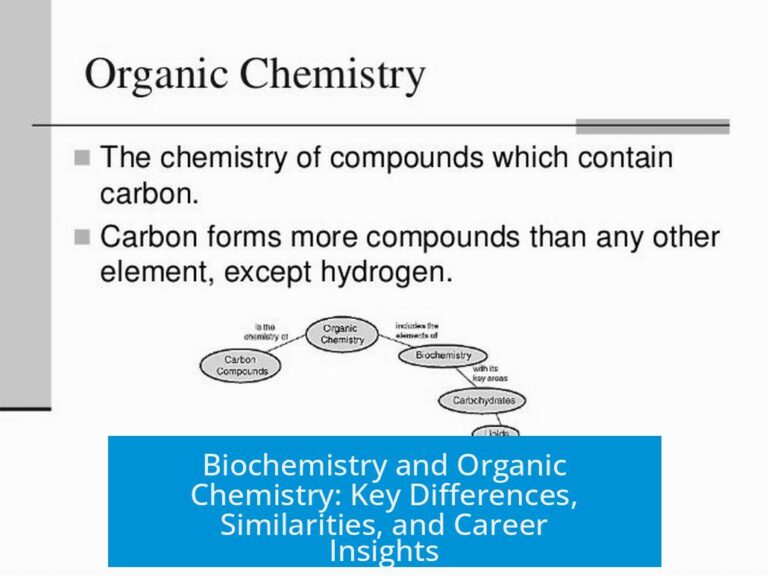What to Do with a MS in Molecular Biology?
An MS in molecular biology offers multiple career pathways, primarily in biotech and pharma industries, academic technical positions, and alternative fields such as science communication and sales. It provides practical skills and flexibility, making it valuable for technical roles. While it may limit rapid advancement or leadership opportunities seen in PhD holders, practical experience and career planning help maximize its potential.
Understanding the Role and Value of an MS Compared to a PhD

The choice between an MS and a PhD in molecular biology significantly affects career trajectory. A PhD centers on learning to think critically and solve complex scientific problems at a high level. This training develops independent research and project management skills. However, many PhD holders do not remain confined to the niche they studied during their thesis.
By contrast, an MS focuses on applied skills and technical proficiency. It provides hands-on experience valuable in industry environments, with more immediate entry into the workforce. A PhD is essential if you aim to become a university professor, lead independent research, or require highly specialized roles.
- PhD develops advanced problem-solving and independent research skills.
- MS offers flexibility and practical lab experience.
- Technical staff positions with an MS are valid and fulfilling.
- PhDs might face overqualification for roles designed for MS holders.
One should pursue a PhD only when aligned with specific career aspirations. The MS degree is widely recognized, and its value increases with relevant experience.
Career Paths and Opportunities with an MS in Molecular Biology
A. Industry Roles in Biotech and Pharmaceutical Companies

Most MS graduates enter biotech or pharmaceutical firms in technical or research support roles. These jobs entail hands-on bench work such as conducting experiments, developing assays, and following established protocols. Positions can be repetitive but offer practical exposure to applied molecular biology.
Progression often requires gaining industry-specific experience and sometimes moving between companies. Many organizations value practical industry experience over educational degree level and provide promotion pathways without the need for a PhD.
- Typical tasks include conducting experiments and developing assays.
- Work may be repetitive but builds applied skills.
- Advancement depends on experience and mobility within industry.
- PhDs are not always required for career growth in industry.
B. Academic and Research Roles
MS holders often work in academic research labs as technical staff. Responsibilities may include running experiments, writing standard operating procedures (SOPs), data presentation, and assisting with research. While they contribute to research projects, MS holders usually do not lead independent studies or apply for grants.
A PhD is generally required for positions demanding independent research leadership and grant writing. MS-level roles in academia tend to be more supportive and technical.
| Role | MS Holder Expectations | PhD Holder Expectations |
|---|---|---|
| Research Lead | Limited, usually technical support | Independent research and grant writing |
| Technical Work | High involvement in experiments and SOPs | May supervise or conduct advanced experiments |
| Publication | Assists or co-author | Primarily responsible for authorship |
C. Alternative and Non-Traditional Careers
An MS in molecular biology also opens doors to roles outside the traditional lab setting. Graduates pivot into finance, consulting, science communication, medical writing/editing, and scientific sales. Leadership positions in biotech or pharmaceutical firms are attainable with accumulated experience.
Importantly, a PhD may hinder some applications requiring only an MS due to overqualification concerns.
- Finance and consulting require analytical and scientific knowledge.
- Science communication and medical writing leverage scientific literacy and communication skills.
- Scientific sales roles benefit from molecular biology expertise combined with commercial interests.
- Leadership roles possible with business experience and MS technical knowledge.
Decision Making and Career Planning with an MS in Molecular Biology
Making informed decisions about whether to pursue further education or focus on industry experience depends on personal preferences and job market demands.
Job listings provide insights into the educational level commonly required. If most appealing roles require a PhD, it indicates a potential need for further study. If roles suited to an MS dominate, gaining experience in these may be sufficient.
Consider the preferred work environment. Large biotech firms might offer structured career paths, while academia emphasizes research independence. Some may choose technical staff positions for stability and hands-on work.
It is also common to pursue a PhD later after gaining industry experience with an MS. This path allows more informed choices and maturity, as well as confidence in research interest.
- Survey desired job postings for degree requirements.
- Evaluate desired work environment: industry vs academia.
- Take time before committing to further education.
- Consider local job market and personal career goals.
- Personality and experience influence success more than degree alone.
Job Opportunities Depending on Location and Market
Local industry presence shapes opportunities available to MS holders. Smaller cities or regions lacking biotech hubs may have limited options for PhD-level positions. In such areas, an MS may provide flexibility and practical employment possibilities.
Biotech clusters in cities like San Francisco, Boston, and San Diego offer dense opportunities, but competition is higher. Salary scales and job availability differ internationally and regionally, influencing career decisions.
For example, in Australia, the biotech industry is developing but not as large as in certain US hubs, which may affect roles available for MS graduates. One should consider relocation or regional market when planning careers.
Summary: Key Takeaways for MS in Molecular Biology Graduates
- An MS provides practical skills valued in biotech, pharma, and academic technical roles.
- PhDs are essential for independent research, grant writing, and professorial positions.
- Industry positions often require hands-on experience; MS holders start in technical roles but can advance.
- Alternative careers like scientific sales and communication are viable and rewarding.
- Job postings guide the decision to pursue a PhD or enter the workforce with an MS.
- Local job markets influence available roles and advancement opportunities.
- Personality, experience, and career goals outweigh degree level alone in career success.
What industries commonly hire MS graduates in molecular biology?
MS graduates usually find roles in biotech and pharmaceutical companies. They work in research support, assay development, and hands-on lab experiments. Industry values practical experience and technical skills.
Can I lead research projects with just an MS degree?
Typically, leading independent research or writing grants requires a PhD. MS holders often support labs by running experiments, writing SOPs, and presenting data but don’t usually lead projects.
What career options exist outside traditional research for MS holders?
MS degree holders can enter finance, consulting, scientific sales, medical writing, and science communication. Leadership roles in biotech firms are also accessible with experience and an MS.
Should I pursue a PhD after my MS?
Only if your career path requires it, such as academic positions or independent research. Many find it better to gain industry experience first and decide later if a PhD suits their goals.
How does location affect job opportunities for MS graduates?
Smaller cities have fewer biotech hubs, limiting high-level research job options. An MS may offer more local flexibility, while large hubs provide broader roles but may require relocation.





Leave a Comment